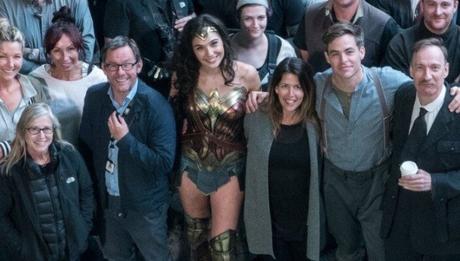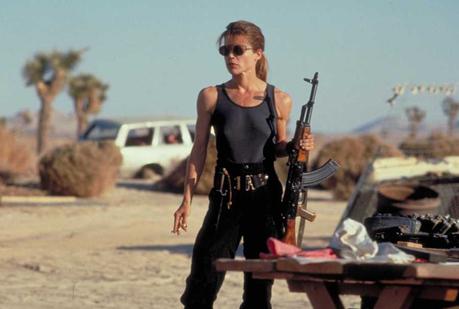It's been a bad week for high profile male feminists.
Joss Whedon did more for female characters on TV than any other showrunner of his era. Now, it turns out he may have been cheating on his wife, and we're supposed to turn on him?
James Cameron did more for female characters in the action genre than any other director in his era. Now, he said something stupid about Wonder Woman, and we're supposed to turn on him?
I've already written about the Whedon controversy and found that most of you had a more reasonable response to the question of whether or not his alleged infidelities tarnishes his work than some of the more reactionary corners of the internet. And I've been dragging my feet on whether or not to write anything about this new James Cameron controversy.
To recap, Cameron said this (in an interview with The Guardian):
"All of the self-congratulatory back-patting Hollywood's been doing over Wonder Woman has been so misguided. She's an objectified icon, and it's just male Hollywood doing the same old thing! I'm not saying I didn't like the movie but, to me, it's a step backwards. Sarah Connor was not a beauty icon. She was strong, she was troubled, she was a terrible mother, and she earned the respect of the audience through pure grit. And to me, [the benefit of characters like Sarah] is so obvious. I mean, half the audience is female!"
Which prompted Wonder Woman director Patty Jenkins to say this (on Twitter):
James Cameron's inability to understand what Wonder Woman is, or stands for, to women all over the world is unsurprising as, though he is a great filmmaker, he is not a woman. Strong women are great. His praise for my film Monster, and our portrayal of a strong yet damaged woman was so appreciated. But if women have to always be hard, tough and troubled to be strong, and we aren't free to be multidimensional or celebrate an icon of women everywhere because she is attractive and loving, then we haven't come very far have we. I believe women can and should be EVERYTHING just like male lead characters should be. There is no right and wrong kind of powerful woman. And the massive female audience who made the film a hit it is, can surely choose and judge their own icons of progress."
And as a man I'm left with the impression that my opinion here doesn't really matter. Never mind that, historically speaking, Cameron's absolutely right about Wonder Woman being an objectified icon. Never mind, though, that he's absolutely wrong about the Gal Gadot version being a step back just because Gadot is objectively gorgeous (what with being a former Miss Universe contestant). Who cares what I think about this because I'll ultimately just be another man trying to mansplain the importance of a female character or arguing the finer points of female representation.
I've done that kind of thing before, but in this case I'm just....just tired of this endless debating. As I argued in my Whedon article, I see much of our ongoing usage of social media to express outrage over things like the Cameron/Jenkins he said/she said as being directly tied to our collective unease with the current state of the world which we then project onto these fights over ideas and ideals represented in pop culture. So, here we are again arguing over what really constitutes a strong female character or whether or not simply saying "strong female character" is sexist since you would never say "strong male character" while living in a world lorded over by Donald Trump.
Let's just look at the end result:

Is the Gal Gadot Wonder Woman a worthy icon? Yes.

Are Ripley (in Aliens mode) and Sarah Connor (in T2 mode) among the greatest action heroines of all time? Yes. Easily. (I assume people remember how completely against-the-grain Linda Hamilton's performance and physique as Sarah Connor was in T2, but maybe I shouldn't.)
Now, the two people responsible for all of that are arguing on social media. Perhaps it represents a generational shift, Cameron of the older belief that in order to make a female character more palatable in action you have to make her more like a male character and Jenkins of the newer belief that female characters can speak to the universal human experience, sometimes in completely non-gendered terms. You realize, though, that they both want the same thing; they just disagree on how to get there. And that when push comes to shove guys like Cameron and myself must concede that at a certain level we'll never truly be able to understand any of this the way a woman can.
So, that's me stepping back from the mansplaining and turning it over to you. What do you think about it? Let me know in the comments.

